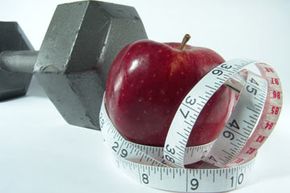Add up your daily meals, divide them by fat, protein and carbohydrate percentages, multiply them by your daily caloric needs and what do you have? Likely, confusion.
Sometimes it seems that forming an eating plan for weightlifting is more suitable for mathletes than athletes. To complicate matters, there are numerous areas of disagreement in the fitness profession. While there are a few dietary tips for weightlifting in which there's a consensus -- like increasing your hydration, for example -- there are plenty more where the guidelines represent differing opinions among professionals.
Advertisement
Take the consumption of fat, protein and carbohydrates for example. The dietary strategies involving the ideal daily intake of these compounds are as varied as the nutritionists who recommend them.
Fortunately, the differences in opinion related to a weightlifter's nutrition are seldom wildly incompatible. For instance, you're not going to find one nutritionist who recommends changing your diet to 90 percent protein while another suggests 90 percent carbs. The differences in approach are subtle, and that's good news for you. It means that if your current eating plan isn't working well for you, a few tweaks may be all that's necessary to get it on track.
So, if you're weightlifting and wanting to start a complementary eating plan, start with our guidelines on the following pages. You can then consult with a nutritionist and physical trainer to gain a more detailed evaluation of how the diet is working for you.
Advertisement


